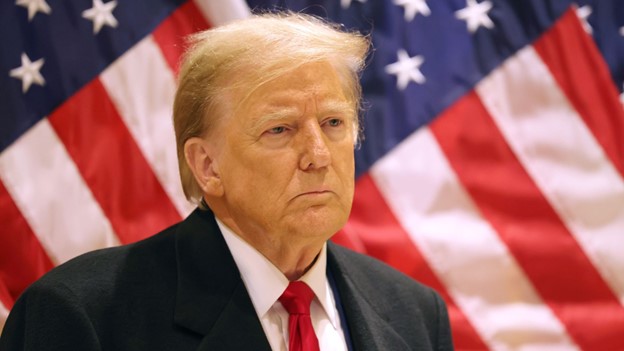In the buildup to Donald Trump's impending hush money trial, the intricate details of the jury questionnaire have come to light, offering a fascinating glimpse into the forthcoming legal proceedings. These questions, intended to gauge potential jurors' perspectives and affiliations, cover a wide spectrum of topics ranging from media consumption habits to sentiments regarding a former president facing criminal charges in state court.
On Monday, amidst legal maneuvers and appeals, an appeals court swiftly dismissed Mr. Trump's latest attempt to postpone the trial, marking a pivotal juncture in the pre-trial proceedings. Simultaneously, a New York court order divulged the probing questions that will be posed to prospective jurors, heralding the imminent commencement of jury selection scheduled for April 15.
The questionnaire delves into various aspects of the jurors' backgrounds, particularly their affiliations with groups either in support or opposition of Mr. Trump. Specific scrutiny is directed towards organizations such as the QAnon movement, the Proud Boys, the Oathkeepers, the Three Percenters, the Boogaloo Boys, and Antifa. Additionally, jurors are queried about their perceptions regarding a former president's susceptibility to criminal charges in state court and their opinions on Mr. Trump's treatment in the ongoing case.
Moreover, jurors will be asked to disclose their media consumption patterns, including the news outlets they follow and the social media platforms they engage with. This comprehensive approach seeks to ensure a fair and impartial selection process, crucial for upholding the integrity of the trial.
The trial stems from allegations of a hush money payment made by Mr. Trump to adult film actress Stormy Daniels, igniting legal repercussions that have embroiled the former president in a contentious legal battle. Despite Mr. Trump's steadfast denial of the charges, insisting they are politically motivated, the trial looms large on the legal horizon, poised to be a focal point in the ongoing scrutiny of his actions.
Mr. Trump's legal team faces the arduous task of navigating through the intricacies of jury selection, with experts noting the challenges posed by the trial's location in Manhattan, a borough historically leaning towards Democratic preferences. Former Brooklyn prosecutor Julie Rendelman remarked on the difficulty of achieving an unbiased jury in such a politically charged environment, underscoring the uphill battle confronting Mr. Trump's defense.
This trial is just one facet of the legal labyrinth Mr. Trump finds himself entangled in, with a total of four criminal cases casting a shadow over his political aspirations. Amidst his efforts to delay the trial and alter its course, recent legal maneuvers have faced swift dismissal, signaling the resolute march towards justice.
In a parallel development, the Supreme Court is poised to hear arguments on Mr. Trump's claim of absolute presidential immunity, a pivotal moment that could have far-reaching implications on the legal landscape. Justice Department special counsel Jack Smith's staunch opposition to Mr. Trump's immunity claim underscores the gravity of the legal battle, emphasizing the overarching significance of this legal showdown.
As the legal saga unfolds, all eyes remain fixated on the impending trial, poised to unravel the complexities of power, politics, and justice in the modern era. In the crucible of the courtroom, the fate of one of America's most polarizing figures hangs in the balance, offering a poignant reflection of the nation's tumultuous journey towards accountability and transparency.






